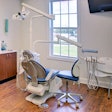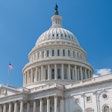Chalk one up for the American Dental Association (ADA). Having lost a battle to keep dental health aide therapists out of Alaska, the organization has nearly won its war to ban them from the rest of the country.
With only a high school education and two years of intensive dental training, dental health aide therapists are certified by the federal government to do simple extractions and restorations, as well as providing prevention, education, and hygiene. Currently ten therapists are practicing among Alaska Natives.
This year the ADA lost a lawsuit to halt the program in Alaska. But the ADA has crafted legislation to make similar programs in the rest of the country all but impossible. The provision is tucked into a bill to reauthorize the Indian Health Care Improvement Act.
The legislation frustrates John Lewis, executive director of the Intertribal Council of Arizona, who notes that Native Americans scattered in remote villages around Arizona have difficulty getting to dentists. "There's a shortage of dentists in rural Arizona," he says. "It takes a special person to want to serve in Indian communities, and there's a higher rate of dental disease in Arizona than in the U.S. as a whole."
The dental health aide therapists in Alaska are recruited from the indigenous people of the state, and the program's designers hope they can bridge cultural gaps--and be willing to serve where dentists are not.
The ADA opposes the program, arguing that dental health aide therapists don't have enough training to safely perform extractions and restorations. "We still have concerns about whether it's the right solution, which is why we prefer that it not be done anywhere else until we find out how it's working," says William Prentice, director of the ADA's Washington office.
In its current form, the reauthorization bill would direct the government to study how well the dental health aide therapist program is working in Alaska. Although the legislation doesn't directly ban states from setting up dental health aide therapy programs, it prohibits the federal government from certifying them outside Alaska until 2017, when the Indian Health Care Improvement Act reauthorization law as a whole would expire.
Without federal authorization, a state wishing to set up such a program would have to revise its licensing regulations, and would likely face a tough battle with the ADA and state dental groups.
Whether or not the restriction will go into place depends on the fate of the Indian Health Care Improvement Act. This legislation governs the way the federal government provides healthcare to American Indians and Alaskan Natives. Originally passed in 1976, it has not been reauthorized since 1992. Congress has kept it going through a series of temporary extensions, but advocates say it needs a complete overhaul to bring it up to date.
The future of the reauthorization remains in doubt in the current Congress. Senate committees have sent the reauthorization to the floor, but various interest groups, working to amend it in their favor, have kept it from a final vote. The bill is still stuck in committee in the House of Representatives.
One group with a great influence on the bill's fate is the ADA, says Kitty Marx, legislative director of the National Indian Health Board (NIHB). "The ADA has a huge lobbying group," she says. "It's hard to fight them."
To win the ADA's support the NIHB -- the primary voice of Native Americans on healthcare in Washington, D.C. -- has given up on extending dental health aide therapy outside Alaska. "Yes it's needed in the lower 48," says Marx. "But it's just not realistic in this political climate. The ADA could kill the whole bill over this provision."
"We've been trying to pass this reauthorization for nine years," she says. "You have to pick your battles."















